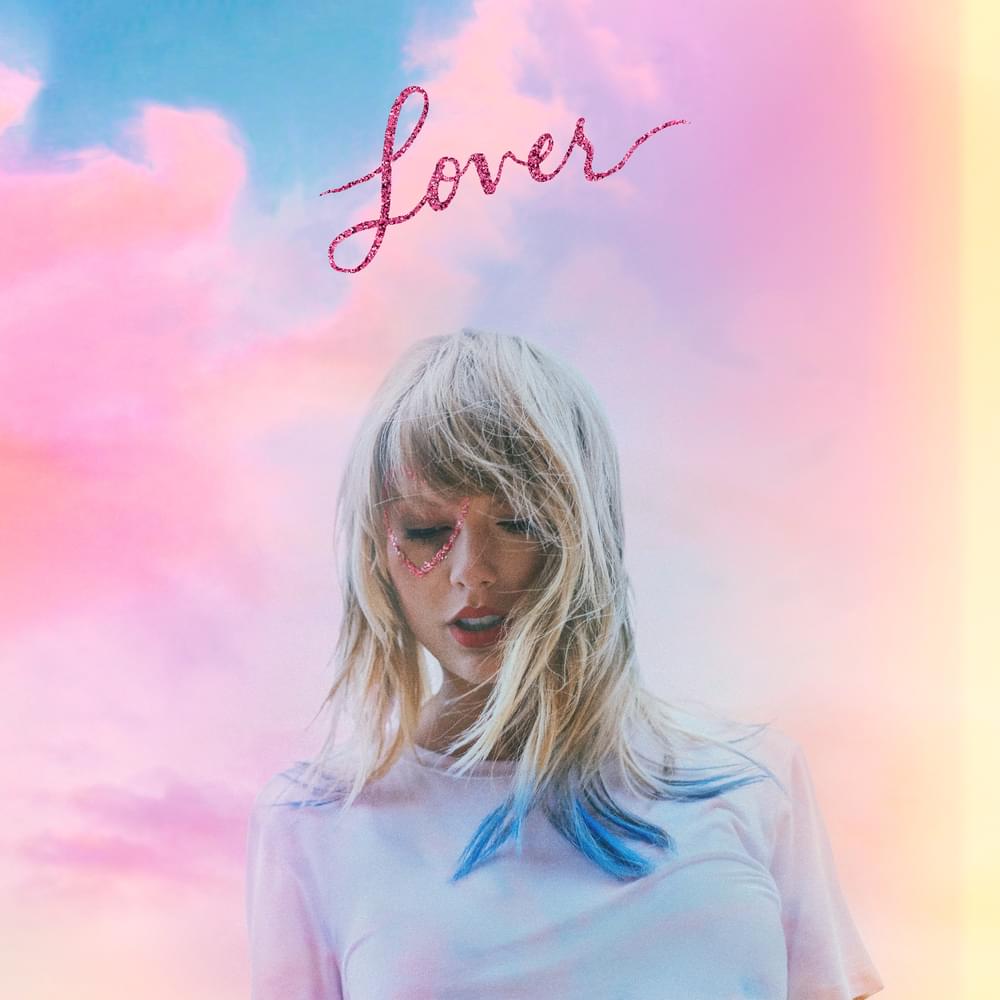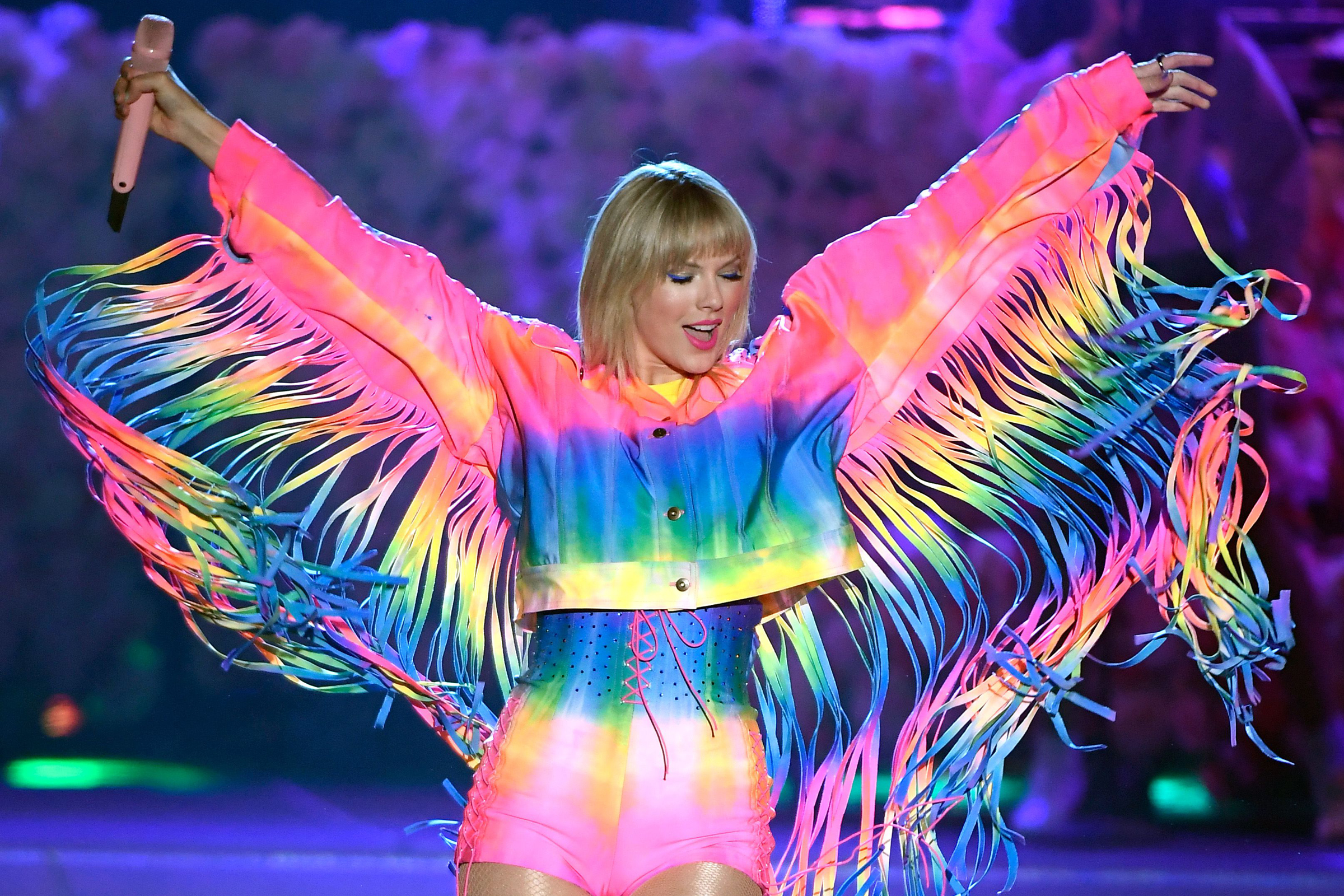I long for a time when the words Taylor Swift were not polarizing. I miss when being a fan, whether diehard or casual (or a “Swiftie” if you prefer—which I don’t), wasn’t considered problematic in a myriad of ways. Being a fan, at least by our modern definition, means having to defend everything that person has said or done—and no public figure has been harder to defend in recent memory than Taylor Swift (or perhaps Madonna).
Swift’s questionable actions or comments actually fail to transcend the resulting discourse around her; in other words, Taylor Swift might have dug her own grave from time to time, but only because we handed her the shovel. It seems as though our contemporary popular music landscape just could not allow a female musician to seamlessly travel the worlds of both country and pop music without some bumps in the road—even if Swift, at times, allowed them to happen. “I come from country music,” she told The Guardian in a new interview, and one of her most honest ever. “The number one thing they absolutely drill into you as a country artist, and you can ask any other country artist this, is ‘Don’t be like the Dixie Chicks!’ … They were made such an example that basically every country artist that came after that, every label tells you, ‘Just do not get involved, no matter what.’”
When she left country music behind in favor of the completely pop-focused 1989 in 2014, Swift was working her hardest to win the popularity contest that is popular culture—perhaps caused by, in part, her yearning to escape the misogynistic slut-shaming she experienced at the hands of mainstream culture critics during her last official country album, Red, in 2012. But no list of celebrity friends or feuds would help her win that contest, especially when she discovered that it’s in fact a battle. Even if she brought it on herself, as the public opinion at large has come to preach, I don’t think anyone considered the extent to which the bullying and criticism began to affect her, warranted or not. “[W]hen people are in a hate frenzy and they find something to mutually hate together, it bonds them,” she said. “And anything you say is in an echo chamber of mockery.”
In 2017, when she re-emerged with Reputation following a dramatic series of public feuds and Internet bashings, Swift proved to us her practical ability to wear the shoe on the other foot—even when that campy breed of “become everything they say you are” doesn’t necessarily target her strengths as a performer. But she was still allowing herself to be honest and vulnerable in ways we had never seen before, which says a lot from an artist who has made her name on narrative ballads and love songs. And now, on Lover, Swift’s seventh studio album, Swift is looking at the drama in the rear view mirror—in fact, it’s so far away that we kind of forgot it existed—and returning to her roots in the closest she has ever been to honestly embracing her unapologetic self.

If anything, Lover will surely benefit from being the first Taylor Swift album that is unburdened by expectations, as Billboard puts it. Considering both 1989 and Reputation had a lot to live up to, so to speak, Swift finally feels secure in her standing as a pop artist on Lover. If we had to endure the childish albeit catchy call-outs on “Bad Blood” and the old Taylor Swift dying on “Look What You Made Me Do,” Lover’s singles “ME!” and “You Need to Calm Down” feels like the rainbow after the storm. The entire album, in fact, feels like a rainbow—one that celebrates love, happiness, and liberating oneself from past worries. Maybe the old Taylor isn’t actually dead after all? Swift was also particularly eager to begin a new era, since not only did she sign a new record deal with Republic Records and Universal late last year, but it would also mark the first album that she legally owns. But none of that seems important now—despite the continuing controversy surrounding her former label head selling Swift’s old master recordings to Scooter Braun—as Lover remains delightfully untainted by any of the drama this time around. (She swears she doesn’t love the drama; it loves her, remember?)
Lover sounds like a sequel in part to Reputation while also being a smile and a nod to the future. Since Swift has long since been accused of “playing the victim” and becoming a symbol of “white victimhood,” she continues to subtly address those labels with her signature tongue-in-cheek, achingly poetic lyrics. On “The Archer,” she says she’s been the archer and she’s been the prey. “Who could leave me, darling? / But who could say?” It yet again begs the question, who really knows the truth? Better yet, who deserves to know the truth? She also addresses, between the lines, her failure at being more publicly outspoken, politically and otherwise: “I never grew up / It’s getting so old.” She returns to her roots on tracks like “Cruel Summer,” “Paper Rings,” “Miss Americana & the Heartbreak Prince,” “Death By a Thousand Cuts,” and “Afterglow.” (Swift also continues to make copious use of time spent recording with Jack Antonoff—who also produced large portions of 1989 and Reputation—but interestingly enough, Lover contains no contributions from Max Martin). She asks us to consider if her publicist would have to work as hard if she were a man on “The Man”—a song which feels particularly relevant in the Me Too and Time’s Up era. She sings about a particular English love on “London Boy,” returns to her country roots and songwriting on “Soon You’ll Get Better” (a collaboration with the Dixie Chicks), and delivers quite possibly one of the best love songs of her career on the title track, “Lover.” (Dare I say it even compares to the Speak Now days when she wrote entire albums by herself?)
Much of the recent disdain surrounding Swift, in addition to her aforementioned celebrity feuds with Kanye West and Katy Perry, has been her lack of political activism—her failure to publicly endorse a candidate for the 2016 U.S. election led to the Internet furiously declaring her a Republican and Trump’s darling, despite having virtually zero evidence to support those claims. If there is one thing our mainstream popular culture holds dear, especially in these trying political times, it’s a public figure using their voice to hopefully denounce what P!nk refers to as “so much wrong going on outside.” And late last year (ironically, exactly around the time Swift left her country label in favor of Republic and Universal), she finally tried her hand at becoming political by endorsing two Democratic candidates for the 2018 midterm election, putting an end to the Trump supporting rumors once and for all. And, after encouraging her followers to register to vote in a post on Instagram, Vote.org reported that 65,000 people registered to vote in the hours following—an unprecedented surge so close to a deadline.
- And yet, even as Swift is finally using her voice for good and using less of it to incite drama, it seems as though people are still not happy. In June, Swift shared a letter written to Senator Lamar Alexander asking him to support the LGBTQ community via the Equality Act, and the music video for Lover’s second single “You Need to Calm Down”—whose lyrics address homophobia and Internet trolls—urges fans to do the same by linking to a Change.org petition. But for many it’s still not enough—and it seems as though nothing she ever does will be enough. Perhaps Taylor Swift has committed too many public gaffes in recent memory for a woman to ever reach an accepted narrative of forgiveness in mainstream media. One review referred to “You Need to Calm Down” as feeling “insincere, forced, [and] unnatural,” implying that Swift was just another white female celebrity looking to profit from supposed activism during Pride month. But the history of Swift’s tendency for acts of kindness and generosity tell a different story—one that is largely lost in the sea of her mistakes. In 2011, she donated $70,000 worth of books to her hometown library, she donated $50,000 worth of the proceeds from her single “Welcome to New York” to the New York Department of Education in 2014, and she has a long history of donating money to fans in need. But these facts are ignored or forgotten in comparison to what Swift has done wrong—making it almost systematically impossible for her to ever make it right in all of the eyes of the public.
 |
| Taylor Swift during a Pride Month performance in Los Angeles on June 1, 2019 (Photo: Michael Buckner/Hollywood Life/Shutterstock) |
Above all, even considering any polarizing controversy, Lover feels like a warm hug from a girl we used to know and love, before pop music politics and a lot of other stuff got in the way. The album also feels like a reminder: despite it all, Taylor Swift is very good at what she does. No matter which way she turns, she is clearly an extremely versatile musician—just watch her Reputation Stadium Tour concert film on Netflix if you don’t believe me—and continues to prove, time and time again, her outstanding knack for hooks, melodies, and poetic lyrics; you know, the ones that make you long for a love that never existed? She might not be for everyone, but her talent is undeniable. Much like Madonna, all the time spent discussing why she’s polarizing takes away from time we could be spending talking about how great she can be.
“It isn’t love, it isn’t hate, it’s just indifference,” Swift sings on Lover’s opening track, “I Forgot That You Existed.” If the album were to have one central theme, I believe this to be it. Swift referred to the album being about “a celebration of love, in all its complexity, coziness, and chaos,” and the closing track “Daylight” ends with a voiceover that says she wants to be defined by the things that she loves. But to me, Lover is in fact about indifference—a place Swift has finally reached as an artist where she can exist as whoever she wants to be, with whoever wants to be along with her for the ride. Taylor Swift’s transition and growth over the last five years brings to mind that of Cady Heron in Mean Girls. She’s gone from a homeschooled jungle freak, to a shiny Plastic, to most hated person in the world, and now she’s an actual human being. Of course, the haters are still gonna hate, hate, hate, and always will. But you know what? It’s about time that they calm down.
Jeffrey’s favorites from Lover: “I Forgot That You Existed,” “Cruel Summer,” “Lover,” “The Man,” “The Archer,” “Miss Americana & the Heartbreak Prince,” “Paper Rings,” “Cornelia Street,” “Soon You’ll Get Better,” “Afterglow,” “You Need to Calm Down,” and “ME!”


No comments:
Post a Comment